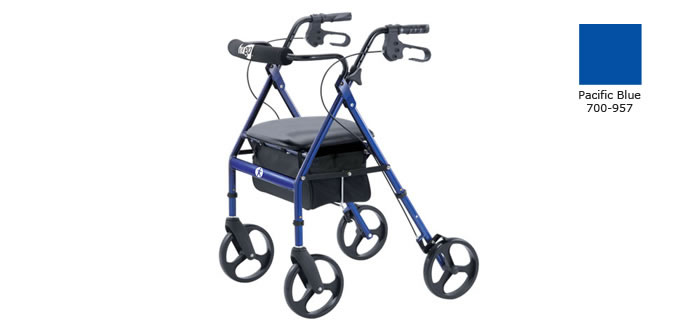Do I Need a Walker or Rolling Walker?
Walkers are needed for a myriad of reasons. If you experience shortness of breath, arthritic pain, or can’t walk and carry objects at the same time. If you are afraid of falling, being alone and becoming socially isolated, you may need a walker.
Like any other tool we purchase throughout our lifetime, a walker is selected according to personal preferences, needs, lifestyles and budgets. Choosing the right one will allow us to live our lives to our maximum ability.
For some people, the right choice is obvious and easy to identify. For others, a combination of factors could complicate the process of selection. A therapist should be able to help you determine your needs and find the correct walker or rolling walker for you.
Physical considerations in choosing a mobility aid
There are three basic indicators that a person may need a mobility aid:
1. Decreased weight bearing
You can’t rely on one or both of your legs to stand. Examples include:
• Fractures that are healing or non-healing
• Wounds on the feet and lower legs that heal slowly
• Arthritis-related pain
• Pain related to poor circulation
• Hip precautions following surgery
• Amputations (hopping) or walking with a prosthesis
2. Fatigue or decreased endurance
You get tired easily. Examples include:
• Respiratory conditions and shortness of breath
• Deconditioned physical fitness after an extended illness
• Systemic conditions such as diabetes, MS and Parkinson
• Frailness associated with normal aging
• Arthritis
3. Poor balance
You need help with stability and steadiness. Examples include:
• Neurological conditions such as stroke, multiple sclerosis, cerebral palsy, or diabetic neuropathy
• Low blood pressure
• Dizziness
• Inner ear disturbances
• Slow reflexes to changes in position or body sway




 and get Cash rewards!
and get Cash rewards!